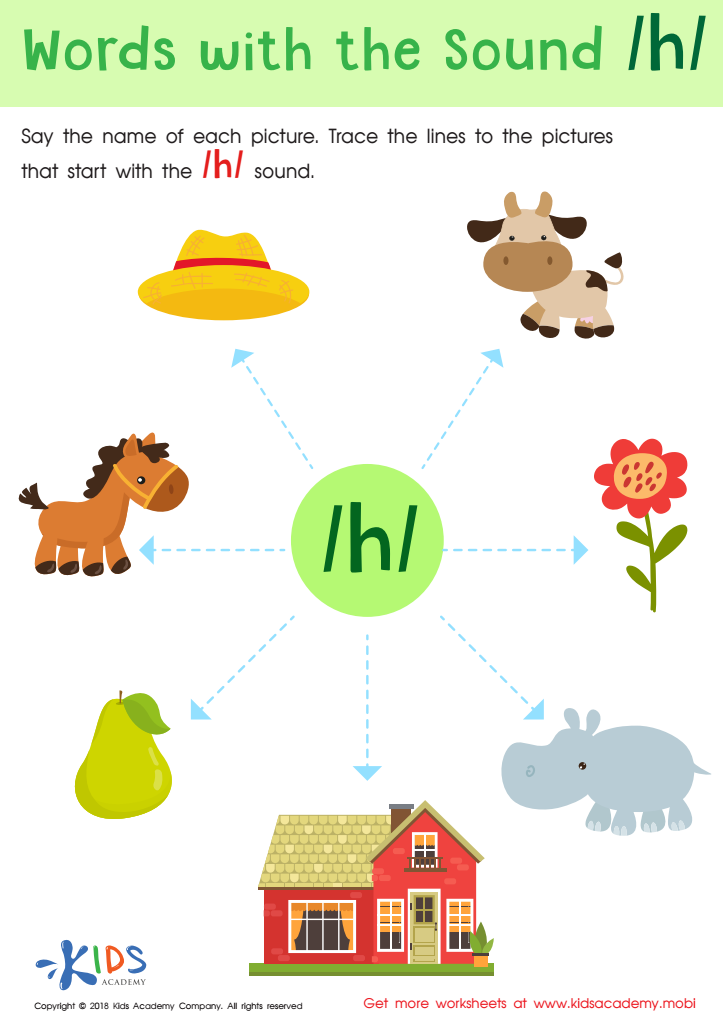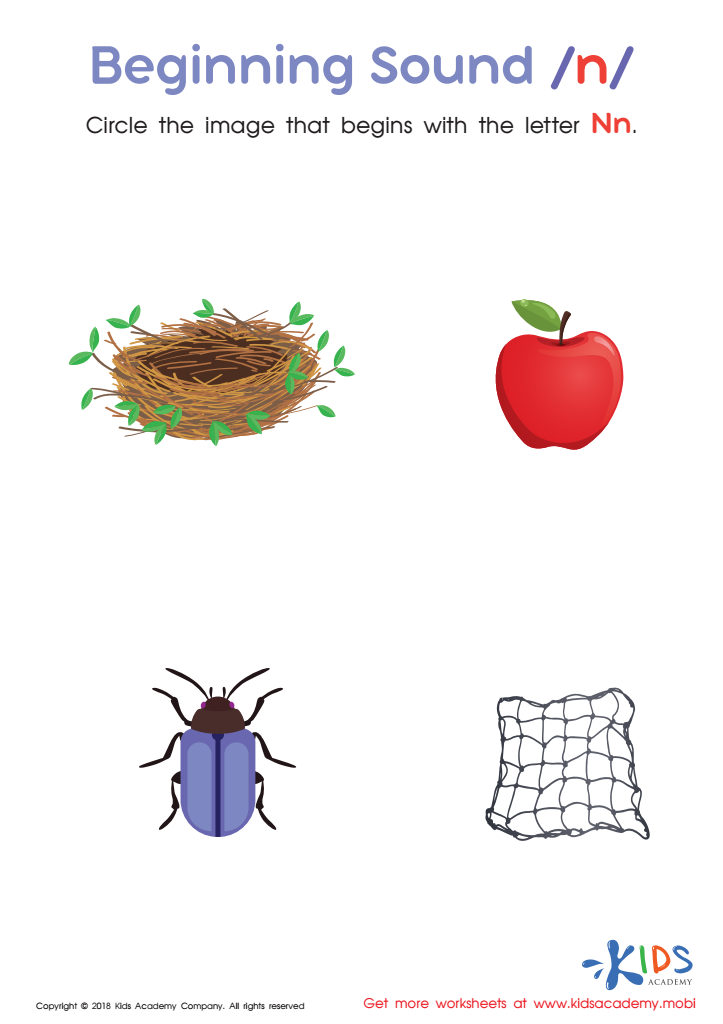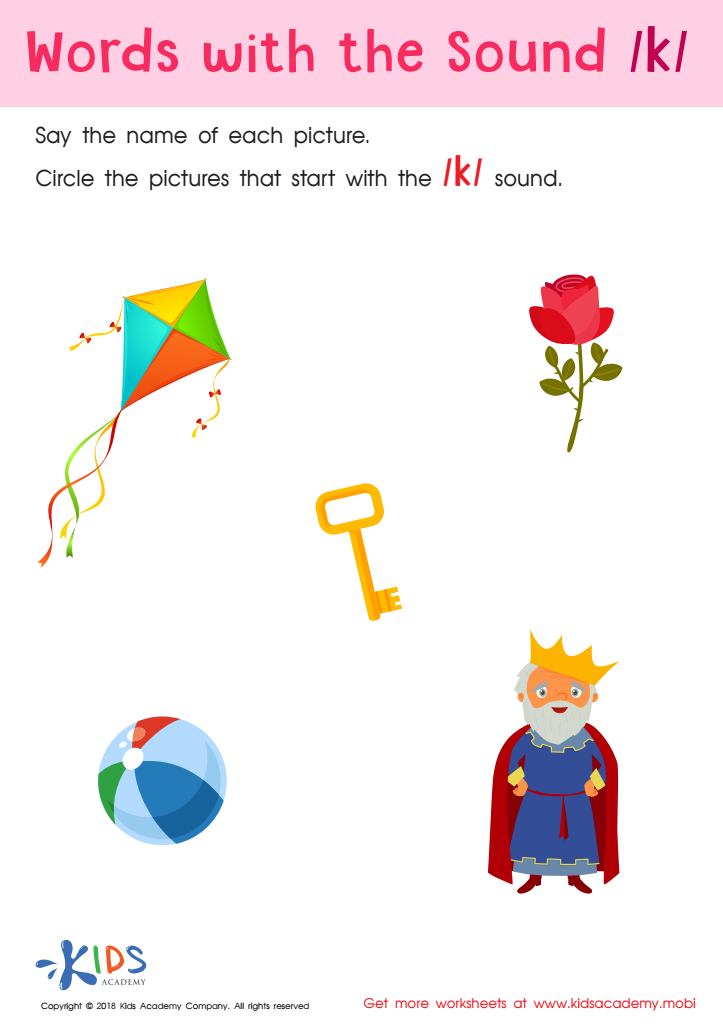Phonics Skills Normal Beginning Sounds Worksheets for Ages 4-9
3 filtered results
-
From - To
Enhance your child's reading journey with our "Phonics Skills Normal Beginning Sounds Worksheets for Ages 4-9". Thoughtfully designed to engage young minds, these printable worksheets help kids master initial sounds crucial for early literacy. Perfect for children aged 4-9, our resources strengthen phonemic awareness through fun, interactive activities, fostering a strong foundation in reading. Featuring diverse exercises like matching games, fill-in-the-blanks, and coloring tasks, our worksheets are both educational and entertaining. Ideal for classroom and home use, our phonics worksheets make learning beginning sounds a delightful adventure for budding readers. Unlock the joy of reading with our expertly crafted tools!


Words with sound h Reading Worksheet


Beginning Sound «n» Worksheet


Words with sound k Reading Worksheet
Phonics skills, particularly the understanding of normal beginning sounds, are crucial for children aged 4-9 because they form the foundation of reading and writing skills. At this early stage, children are transitioning from recognizing letters to understanding how these letters correspond to specific sounds (phonemes). Mastery of phonics helps them decode words, boosting their reading fluency and comprehension. When children can easily identify beginning sounds, they can more readily blend these sounds with others to form words, facilitating smoother and more confident reading experiences.
Moreover, strong phonics skills correlate with better spelling and writing abilities. As children understand how sounds map to letters, they can apply this knowledge to compose their own words and sentences. This foundational skill set not only aids academic success but also fosters a love for reading, opening doors to imagination and knowledge.
For parents and teachers, emphasizing phonics and beginning sounds can also help identify early learning difficulties, providing an opportunity for timely intervention. Encouraging and supporting children in this area encourages independence, improves their language skills, and sets them on a path to becoming proficient readers and effective communicators, turning them into lifelong learners. Therefore, investing time and resources into developing these skills yields long-term benefits in a child’s educational journey.
 Assign to My Students
Assign to My Students














